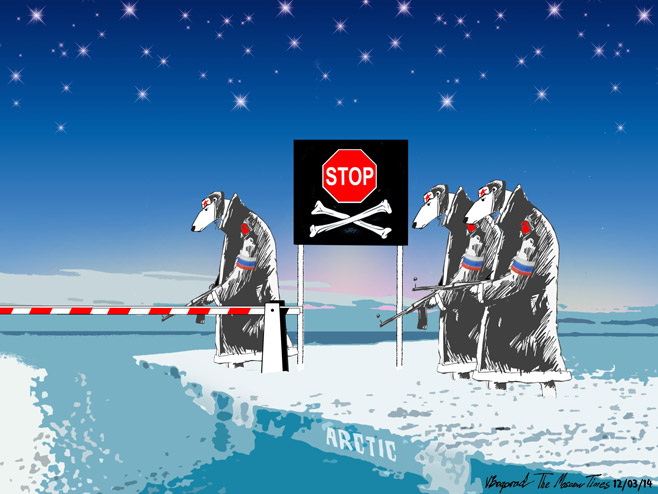
Gazprom and Rosneft will have to delay Arctic offshore drilling operations for two to three years, Russian Natural Resources and Environment Ministry Deputy Minister Denis Khramov said at a conference on September 29 in Russia’s Far East.
He blamed sanctions and the inability of Russia to get the equipment it needs to complete its ambitious Arctic Shelf drilling goals. Khramov warned Russia is falling behind neighboring Norway.
The bad news:
– In 2017, Russia will only drill two wells, instead of the planned 14,
– In 2019, only 19 wells will begin drilling stead of the previously announced 28.
The good news:
– Oil and gas companies can focus on developing onshore projects in Far East.
– Drilling in the Arctic isn’t profitable at current oil prices, maybe it will be in 2-3 years.
In 2014, Russia drilled 11 wells. By comparison, Norway drilled 57 last year. Norway is currently developing 80 fields that produce 180 million tons of oil equivalent, whereas Russia is producing 83 million tons and developing 13 fields, four of which are coastal.
Though Mr. Khramov didn’t mention it outright, low oil prices play a significant role in the decision as drilling in the Arctic is more expensive, less predictable, and more dangerous than simply pulling oil out of the ground in Siberia.
Russian business daily Vedomosti estimates that Gazprom and Rosneft (the only companies that have the right to drill in the Arctic) spend $500 million each time they drill a new well, and an additional $700 to build a platform in order to extract the oil.
By 2025 Russian oil companies are obliged to drill 142 exploratory wells, which combined will cost at least $50 billion, according to Vedomosti. Though revenues are at a record high, both Rosneft and Gazprom are heavily indebted and weighed down major capital-intensive projects across the Eurasian continent.
The logical answer would be to get money from foreign partners, but US and EU sanctions against Russia forbid the sale of new offshore drilling equipment and technology. Sanctions ExxonMobil forced to bow out the Kara Sea project with Rosneft, just weeks after the ‘University 1′ well started pumping oil in the East-Prinovozemelsky 1 block.
Arctic reserves in Russian waters are estimated at 13.19 trillion cubic meters of gas and 1.69 billion tons of oil, or about one-third of total Arctic resources.
Gazprom has five licenses to explore and develop the Arctic shelf, and Rosneft has eight. Under Russian law, only companies that are more than 50% state-owned and also have at least years of Arctic experiences are eligible for permits. The energy giants were awarded permits in June 2013, which they reportedly received after paying major bribes.
